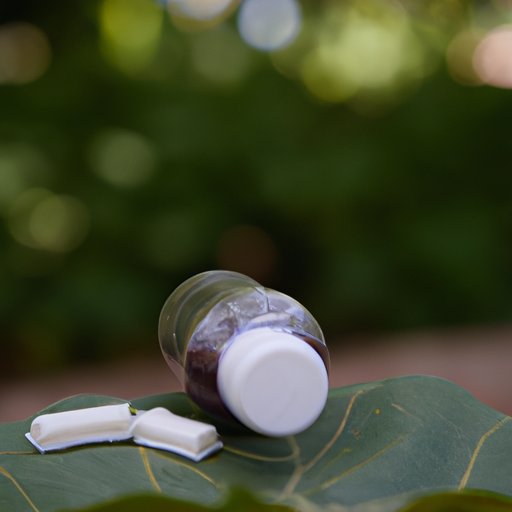
Introduction
Ringworm is a common skin infection caused by a fungus that can affect anyone at any age. The infection causes a red, itchy, circular rash that can spread quickly. In this post, we will cover different ways of treating ringworm including natural remedies, medications, and treatment options for pets and children.
Natural Remedies to Treat Ringworm at Home
Natural remedies for ringworm include using tea tree oil, apple cider vinegar, garlic paste, and other options. These remedies can be effective against mild cases of ringworm, and they are easy to use. To apply tea tree oil, simply mix a few drops with a carrier oil, such as coconut oil, and apply it to the affected area. Apple cider vinegar can be applied to the affected area once or twice a day. Garlic paste, made by crushing fresh garlic cloves, can be applied directly to the skin.
While natural remedies can be helpful, they are not guaranteed to work and may have side effects for some people. It is important to use them with caution, and discontinue use if any negative side effects occur.
Preventing and Treating Ringworm Infections in Children
Children are particularly susceptible to ringworm infections due to their close contact with others in schools and daycare centers. To prevent ringworm infections, it is important to encourage children to practice good hygiene, such as washing their hands regularly and avoiding close contact with infected individuals. If a child does get infected, treatment options include applying topical creams and administering oral medications, both of which should only be done under the supervision of a medical professional.
Medications for Ringworm: A Guide to Prescription and Over-the-Counter Options
There are various medication options available for treating ringworm, ranging from prescription creams to over-the-counter options, such as antifungal powders. It is important to consult with a healthcare provider before choosing a medication, as they can provide information on the most effective and safe options. Side effects are possible with any medication, so it is important to follow the instructions carefully and be aware of possible reactions.
Ringworm and Your Pet: Treating and Preventing Infections
Pets can also get ringworm infections through contact with infected soil, animals, or humans. To prevent pet infections, ensure they have good hygiene practices. Treatment options include topical creams and oral medications prescribed by a veterinarian. It is important to follow the treatment instructions carefully and monitor pets for any signs of negative reaction.
Natural and Medical Treatment Options for Severe Ringworm Infections
For severe or recurring cases of ringworm, more aggressive treatments may be necessary. This could include medication options such as oral medications, medicated creams, and UV light therapy. Natural remedies such as neem oil and aloe vera can also be effective. It is important to consult with a healthcare professional to determine the best course of action for severe or recurring cases of ringworm.
Conclusion
Overall, there are many treatments available for ringworm infections. From natural remedies to prescription medication, there are many ways to treat this common fungal infection. It is important to consult with a healthcare professional to determine the best course of action for your individual situation, especially for severe or recurring cases.





